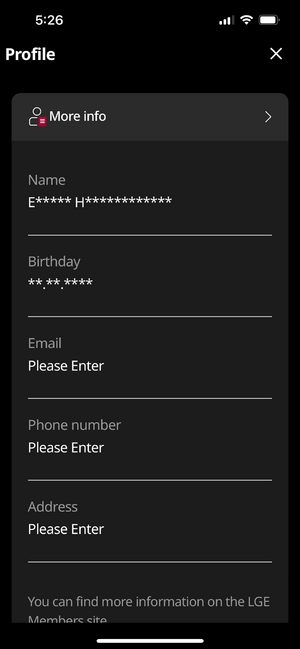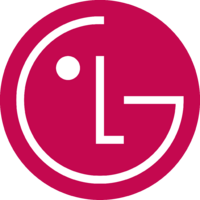LG
Appearance
LG Corporation is a South Korean electronics and home-appliance chaebol (or mega corporation). They make microwave ovens, ovens, stoves, refrigerators, cell phones (until 2021), TVs, speakers, drives for Blu-ray Disk, CD, and DVD, computer components and peripherals, and other electronics.
Founded in 1947, the company is currently worth over 9.9 billion USD in market cap.[1]
Controversies[edit | edit source]
| Controversy | Year | Background Info | Aftermath | Related Article | Related Video(s) |
|---|---|---|---|---|---|
| Linear Compressor Reliability | 2001 | Since its introduction, LG has been the subject of several class action lawsuits stemming from repeated failures of its linear compressor design for most of its refrigerators. There is also widespread criticism of LG's warranty and service practices related to these compressor failures. | Ongoing | https://www.youtube.com/watch?v=Km-QqU5Pk84&t | |
| Smart Home Privacy Violations | LG's smart home devices; ranging from its large home appliances, vacuum cleaners, and its TVs have been criticized for their aggressive data collection policies and forced arbitration. | Ongoing | https://www.youtube.com/watch?v=3suztVz8s7s |
Violations of smart-home privacy[edit | edit source]
Part of the company's appliance division is involved with smart appliances, like microwaves. The company also makes smart OLED TVs.[2]
Implementation[edit | edit source]
The implementation of "smart" LG devices come with the following features:[3][4][5]
- Terms of service with the only option being to "accept."
- A single terms of service that dictates how a multitude of unrelated LG devices can use your personal data. Agreeing on one device means agreement on all.
- There is only an easily accessible "accept all" button when the service prompts the user with the Terms of Service (ToS).
- Information gained by smart appliances are used to create a profile on the consumer. This profile is used to give targeted advertisements.
- Products such as the lines of LG smart vacuum cleaners collect information such as images, floor maps, cleaning history, cleaning diary list, and video feed, which is then sent to LG servers.
- Products such as LG smart TVs have the "Do not sell my personal data" setting off by default, being opt-out rather than opt-in.
- In some countries, on some models, (e.g EU and OLED C3) the data collection may become enabled by some firmware updates without the user having accepted the license agreement that entitles LG to collect data. However, the setting to disable the data collection is in a sub-menu that is inaccessible unless the user has agreed to the license agreement. Thus, the user is forced to agree to the license agreement in order to disable data collection.
- Products such as LG smart TVs aggressively promotes updating the firmware. If there is a newer firmware version, then the user will be prompted to update every time the TV is turned on.
- Products such as LG smart TV's collect information on the use of the product, such as what content you watch and when you watch it.
- LG's "ThinQ" mobile app to remotely control their line of portable air conditioners have a requirement for users to input their full name, email, and birthday in order to access these remote-control features. Further information fields prompted but not required include phone number, location, and address information.
- In cases where the OLED TV specifically, not connected to the internet by WiFi or LAN, prompt appears to suggest the user to connect to a network in order to use voice options. This behavior occurs regardless of voice privacy settings set by the user.
Broader implications[edit | edit source]

This incident represents broader implications:
- A lack of control over one's own data.
- A lack of consent before using the customers data to make a profit.
- Services being "opt-out" instead of being "opt-in."
- A lack of privacy in one's own home, because their electronics siphon data to LG, even after the transfer of ownership has been made.
- A lack of privacy regardless of the user modified settings, as voice recognition, recording, and transmission attempts happen regularly.

